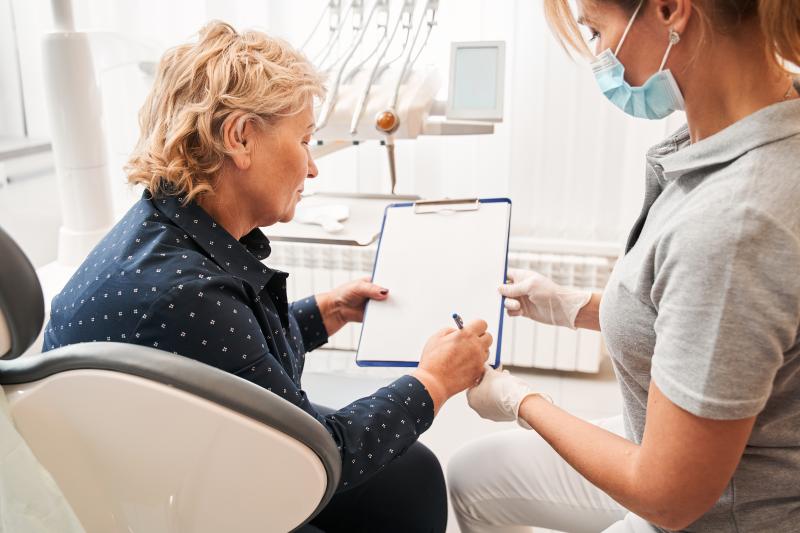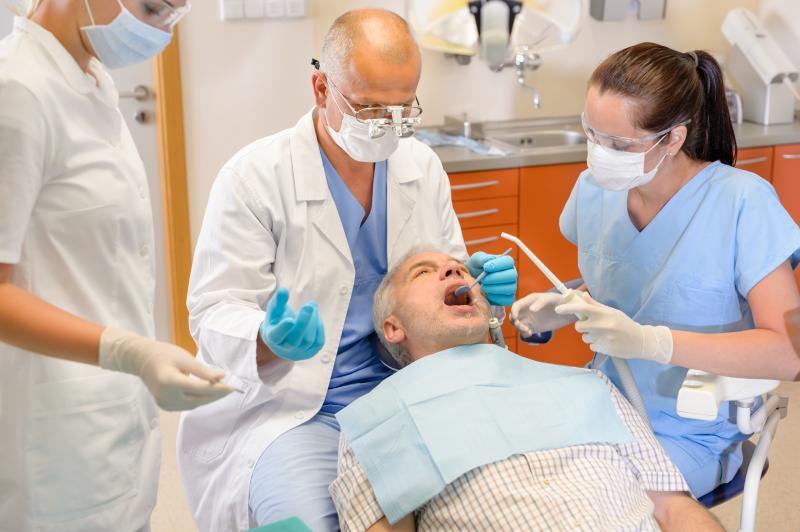4 Tips On Dentist Visits For Seniors

Seniors have special dental needs since most of them would have missing teeth and weak gums due to old age. As people get older, the oral cavity will also show signs of structural and functional deterioration due to diet, lifestyle, and medical conditions. Since elders need proper oral health care, they would need to visit a dentist at least twice a year.
If you’re assisting an elderly person to his or her dental appointments, learn how you can best prepare and guide them with these four helpful tips below:
- Wear Personal Protective Equipment (PPE)
Due to the risk of COVID-19, you have to make sure that you and your senior companion follow basic health protocols and wear PPE whenever you have to go outside—including dental visits. If your elderly family member doesn't need urgent dental procedures like tooth extraction or denture installation, then it may be best to just stay at home for now.
PPE would generally include a face mask, face shield, and protective suits. You may check this page to know what the best kind of disposable face masks are.
Even if the pandemic is over, it’s best to take safety precautions and have your elderly patient wear a face mask for added protection. A face mask does not just prevent the person from catching COVID-19, but it also protects the person from catching common flu, cough, colds, and other bacterial diseases that may be transmitted via air droplets. Elderly people are immunocompromised and are at risk of any kind of disease, so it’s better to take extra precautions even after the pandemic.
- Perform Basic Oral Care Before The Scheduled Visit
To avoid missing out on a dental appointment, set a reminder on your calendar. Mark the day of the actual visit and set a reminder a day before the actual visit. This way, you can still have time to prepare and remind the senior about his or her dental check-up.
While basic senior oral care like toothbrushing and flossing should be done every day, make sure to not forget this before the dental visit itself. Aside from that, remind your elderly family member to clean his or her dentures at least a day before the check-up.
- Psychological Preparation
Dental visits can be a source of stress for senior citizens. So, an essential aspect of dental appointments is destressing the elderly patient. Monitor the senior's blood pressure (BP) before leaving home and recheck it before the dental procedure. If the elderly patient has high blood pressure, let him or her rest for at least 15 minutes before getting the BP again.

It would also help if you can psychologically prepare the patient before their scheduled visit. Below are several ways to do that:
- Set Proper Expectations: Schedule a telehealth or telemedicine (online) appointment so the elderly patient can talk and ask questions to the dentist before the actual check-up. This helps them be more comfortable, especially if it's their first time to visit that dentist’s clinic.
- Ask How The Patient Is Feeling: Talk to your senior loved one calmly before the dental procedure. Show your genuine concern by asking open-ended questions to explore any possibility of intense stress or anxiety. Help them understand what the procedure is for and why it needs to be done.
- Inform The Dentist About Medications And Medical Conditions
If the senior has pre-existing illnesses or conditions, you must first consult their doctor and let them know if they are allowed to undergo dental procedures. If the doctor allows it, the next thing to do is to inform the dentist about the patient’s existing medical condition. Disclosure of current medications is also necessary so the dentist can recommend the appropriate treatment for the patient.
Seniors might sometimes need urgent dental health care, but you have to tread lightly—especially if they have a history of illnesses and lifestyle risks. Dental issues could also aggravate chronic diseases like:
- Pneumonia: Seniors with poor dental hygiene, particularly smokers, are at higher risk of developing bacterial pneumonia. When a person breathes, the bacteria present in the mouth can pass down to the lungs.
- Heart Disease: Inflammation due to gum disease increases an older person’s risk of heart disease. Gum disease or periodontitis can make a heart condition worse with higher stroke risk.
- Diabetes: Seniors with poor blood glucose control are more prone to dental problems, including inflammation and gum disease. Too much sugar in the saliva promotes oral bacteria growth.
Final Word
Before you accompany a senior to his or her dental appointment, make sure to follow the tips above. Wear the right PPE to reduce the risk of contracting COVID-19 and other diseases, inform doctors and dentists of the patient’s medical history, and offer the elderly genuine assistance throughout the ordeal. After the dental visit, make sure your senior loved ones get enough rest. Monitor their blood pressure and always check how the patient is doing to ensure a full recovery.
More to Read:
Previous Posts:
Next Posts:




